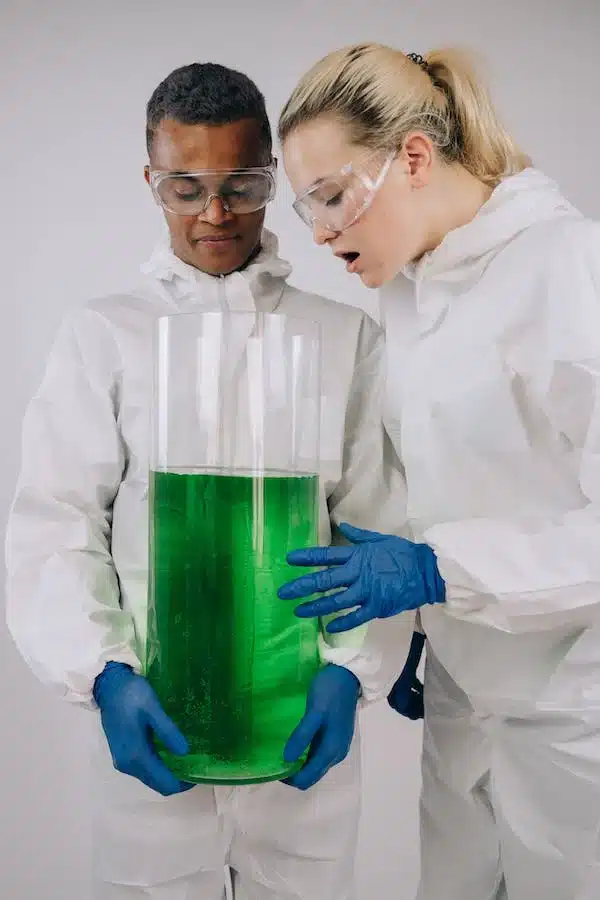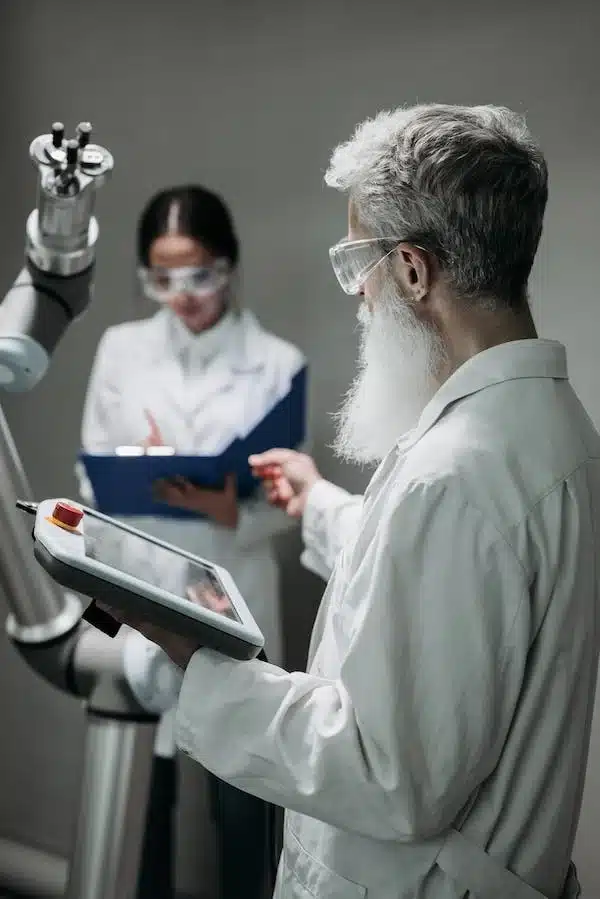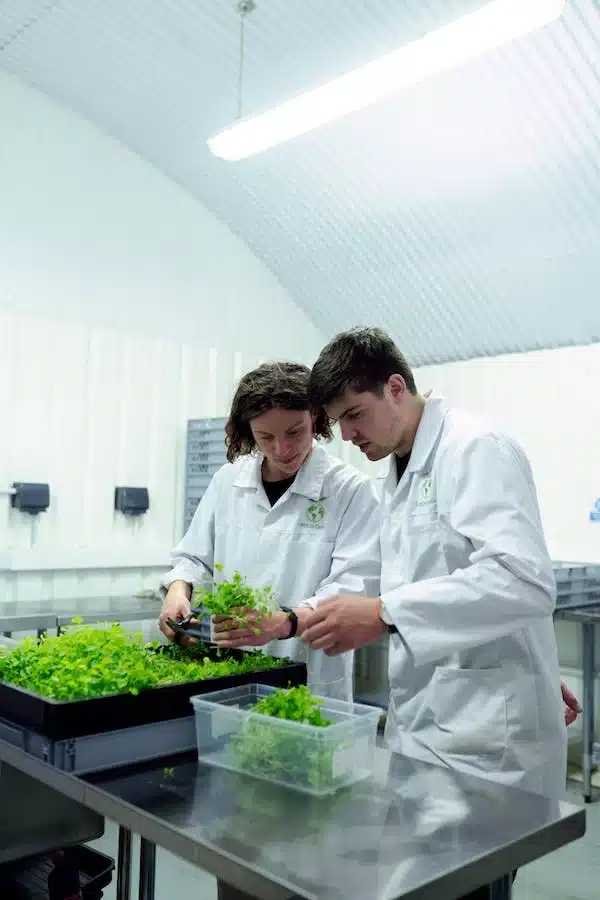Introduction

What do Scientists Do To Serve the human Community Today
Historical Background and Important Persons
What do scientists do: The society we live in today has been greatly influenced by scientific discoveries. Through their research and efforts, scientists have consistently benefited the human population, from creating cutting-edge technology to discovering life-saving treatments. The purpose of this article is to examine the historical background, significant individuals, and the influence of childhood education on the work that scientists conduct today to benefit humanity.
Historical Context:
A major turning point in human history was the scientific revolution of the 16th and 17th centuries. It disproved conventional wisdom, opened the door for empirical study, and produced breakthroughs in a number of disciplines, including biology, chemistry, and physics. Famous people like Marie Curie, Isaac Newton, and Galileo Galilei established the groundwork for a scientific method that still influences society today.
Galileo Galilei:
Galileo Galilei; Galileo’s astronomical findings and experiments served as the foundation for contemporary physics and astronomy. His unwavering quest for knowledge led to the development of the laws of motion, which fundamentally altered our perception of the physical universe.
Marie Curie:
In addition to winning two Nobel Prizes for her ground-breaking studies on radioactivity, Curie cleared the path for developments in cancer therapy and medical imaging. Young scientists throughout the world are inspired by her devotion to scientific research and civic service.
Albert Einstein:
Albert Einstein; His theory of relativity transformed physics and significantly altered how we think about energy, time, and space. His contributions set the stage for developments in GPS, satellite technology, and nuclear energy, which benefited a great number of people worldwide.
The Effects of Teaching Youth:
It is important to teach young people about the contributions scientists make to society today for a number of reasons. First of all, it fosters a love of science and piques interest, which may inspire future generations of scientists capable of taking on difficult problems. Second, it fosters awareness and support for financing for scientific research by illuminating the great contributions scientists have made to society.
Prominent Figures in the Domain
Even though a great deal of science has benefited humanity, certain scientists are particularly noteworthy for their important contributions and unwavering commitment to the advancement of humanity.
Dr. Jonas Salk:
In the 1950s, Dr. Salk made history in public health when he developed the first polio vaccine. His work cleared the path for the development of other life-saving vaccinations in addition to curing a debilitating illness. Through his open dissemination of his discoveries, Dr. Salk exemplified the value of teamwork and unselfish service to humanity.
Dr. Jane Goodall:
Through her groundbreaking studies on chimpanzees, Dr. Jane Goodall transformed the study of primatology and our comprehension of animal behavior. She spent her whole life researching and safeguarding chimpanzees, eventually highlighting the significance of environmental stewardship and conservation. Dr. Goodall encourages young people to become advocates for biodiversity and wildlife preservation via her work.
Norman Borlaug:
Often called the “father of the Green Revolution,” Norman Borlaug devoted his professional life to creating high-yielding crop types and farming methods. His efforts boosted food production in an effort to fight poverty and hunger worldwide. Millions of people throughout the world continue to benefit from Borlaug’s work by steadily closing the gap between research and real-life applications.

Viewpoints and Evaluation
Positive Aspects:
There are a number of advantages to educating young people about the contributions scientists make to society today. First of all, it develops critical thinking abilities, which let people evaluate data impartially and arrive at wise judgments. This is important because understanding complicated topics like vaccine hesitancy and climate change requires scientific literacy in this day and age. Second, it fosters creativity and invention, enabling young brains to address urgent global issues like the creation of renewable energy sources and illness prevention.
Moreover, scientists are essential to ensure that policy decisions are supported by evidence. Youth who are informed about this process may actively contribute to the creation of policies that successfully meet the demands of society. Furthermore, recognizing how scientific research affects society can boost public confidence in the scientific community and close the communication gap between the scientific community and the general public.
Negative Aspects:
Nevertheless, it’s important to take into account any potential drawbacks. Teaching young people about the work that scientists do might unintentionally encourage them to pursue jobs in science, which would oversaturate the labor market and limit their options in other areas. Furthermore, concentrating just on scientific topics might undervalue the value of the humanities and arts, which also make substantial contributions to the welfare of society.
Future Developments:
Education systems must change in order to include a multidisciplinary approach to scientific education in the future. Students can gain a comprehensive grasp of the ways in which scientific research engages with many facets of human civilization by combining science with the arts, humanities, and social sciences. In addition, combining classroom instruction with practical experiences like research projects and internships will inspire young people to work in the field of science by letting them see personally how scientists benefit society today.
Young People Should Find out what subjects scientists research.
With the world changing so quickly these days, science plays a more important role than it has ever had. Youth must be educated about the topics that scientists investigate as they prepare to be the leaders and decision-makers of the future. The purpose of this article is to examine the background, significance, influence, and noteworthy people who have helped advance the area of juvenile science education. A thorough examination will be provided through the discussion of several viewpoints, taking into account both the good and bad elements, and taking prospective future developments on this subject into consideration.
Historical Background and Notable Individuals
What do scientists do; is essential to examine the historical background and the major players who established this area in order to comprehend the significance of young people learning about the subjects that scientists investigate that is What do scientists do. The progress of human knowledge has been greatly aided by scientists, and their discoveries have had a profound effect on society.
An Italian astronomer who backed Copernicus’ heliocentric hypothesis, Galileo Galilei is among the first significant individuals in the history of science. His telescopic findings contradicted the prevailing religious views of the day and resulted in advances in astronomy. Galileo’s contributions opened the door for a scientific way of thinking that valued observation and proof over conventional wisdom.
Another well-known person who made significant advances in physics, mathematics, and astronomy was Isaac Newton. His findings established the groundwork for the Laws of Motion and classical mechanics. Newton’s contributions transformed scientific thought and showed how scientific investigation may be used to comprehend the natural world.
As we advance in time to the 20th century, our comprehension of space, time, and gravity is fundamentally altered by Albert Einstein’s theory of relativity. In addition to revolutionizing physics, his brilliant mind and ground-breaking mathematics upended preconceived beliefs about the cosmos. Einstein’s contributions highlight the significance of challenging received wisdom and pushing the frontiers of science.
The Effects of Teaching Young People About the Subjects Scientists Study
There are significant social ramifications when young people learn about the topics that scientists examine. By providing young people with scientific knowledge, we enable them to critically evaluate information, make well-informed decisions, and progress science.
First of all, education of scientific topics enables young people to comprehend and value their environment. Everyday life is impacted by science in a number of ways, from medical discoveries that treat illnesses to technical developments that influence our communication and transportation networks. Young people who are literate in science will be better able to understand and adjust to these advances.
Youth scientific education also fosters curiosity, critical thinking, and problem-solving abilities. A spirit of inquiry is fostered by scientific pursuits, enabling people to question conventional knowledge and look for solutions based on solid data. We promote creative thinking and the advancement of novel concepts and technological advancements by cultivating an atmosphere that supports these abilities.
Furthermore, encouraging young people to learn about the topics scientists investigate also tackles the contemporary global issues we confront. Pandemics, energy crises, and climate change are complicated issues that need for a scientific knowledge to properly address. Advocating for evidence-based policies, encouraging sustainable habits, and discovering solutions are more probable among youth who are aware of these issues and the scientific efforts being made to solve them.
Notable People Who Have Made Contributions to the Field
Numerous well-known people have made contributions to the field of teaching young people about the subjects that scientists examine. Their initiatives include anything from promoting science education to improving the accessibility and interest of scientific information.
Bill Nye, as “The Science Guy,” has done a great deal to advance scientific education for young people. Through his books, television series, and captivating speeches, Nye has helped young people understand and enjoy difficult scientific ideas. Millions of young people throughout the world have been captivated by him, and this has sparked their interest in science.
Astrophysicist and scientific communicator Neil deGrasse Tyson has also been instrumental in making science more widely known. His books, television shows, and public talks have helped a large audience to relate to and comprehend astrophysics and other scientific subjects. Tyson is well-known in the sector since he constantly promotes the value of science education.
Furthermore, institutions like UNESCO and the National scientific Foundation (NSF) have been instrumental in advancing scientific education across the world. They create curriculum, instructional programs, and outreach projects to inspire young people to learn about the subjects that scientists investigate. These groups make scientific information accessible to a wide range of populations and geographical areas and aid in its spread.
Educating young people about the topics that scientists examine is crucial to developing tomorrow’s leaders and decision-makers. We can appreciate the importance of scientific research and its influence on society by knowing the background information and notable individuals who have made contributions to this subject.
The benefits of science education for young people are shown in their increased capacity to understand the world, cultivate critical thinking abilities, and take on global concerns. Prominent figures such as Bill Nye and Neil deGrasse Tyson have made significant contributions to this sector by enhancing the accessibility and engagement of scientific education. It is obvious that young people should continue to acquire and embrace scientific knowledge as we go into the future in order to manage a world that is always changing.

Conclusion on What Do Scientists do
In summary, educating young people about the contributions scientists make to society today is essential for promoting scientific literacy, motivating the next generation, and guaranteeing the use of evidence in decision-making. What do scientists do, From pioneers in the past like Marie Curie and Galileo Galilei to prominent personalities in the present like Drs. Jonas Salk and Jane Goodall, scientists have greatly benefited society. While there are benefits, including creativity and the ability to think critically, it’s crucial to combine scientific education with other subjects. By doing this, we can educate young people to become knowledgeable citizens who actively work to improve society for all people, both now and in the future.

